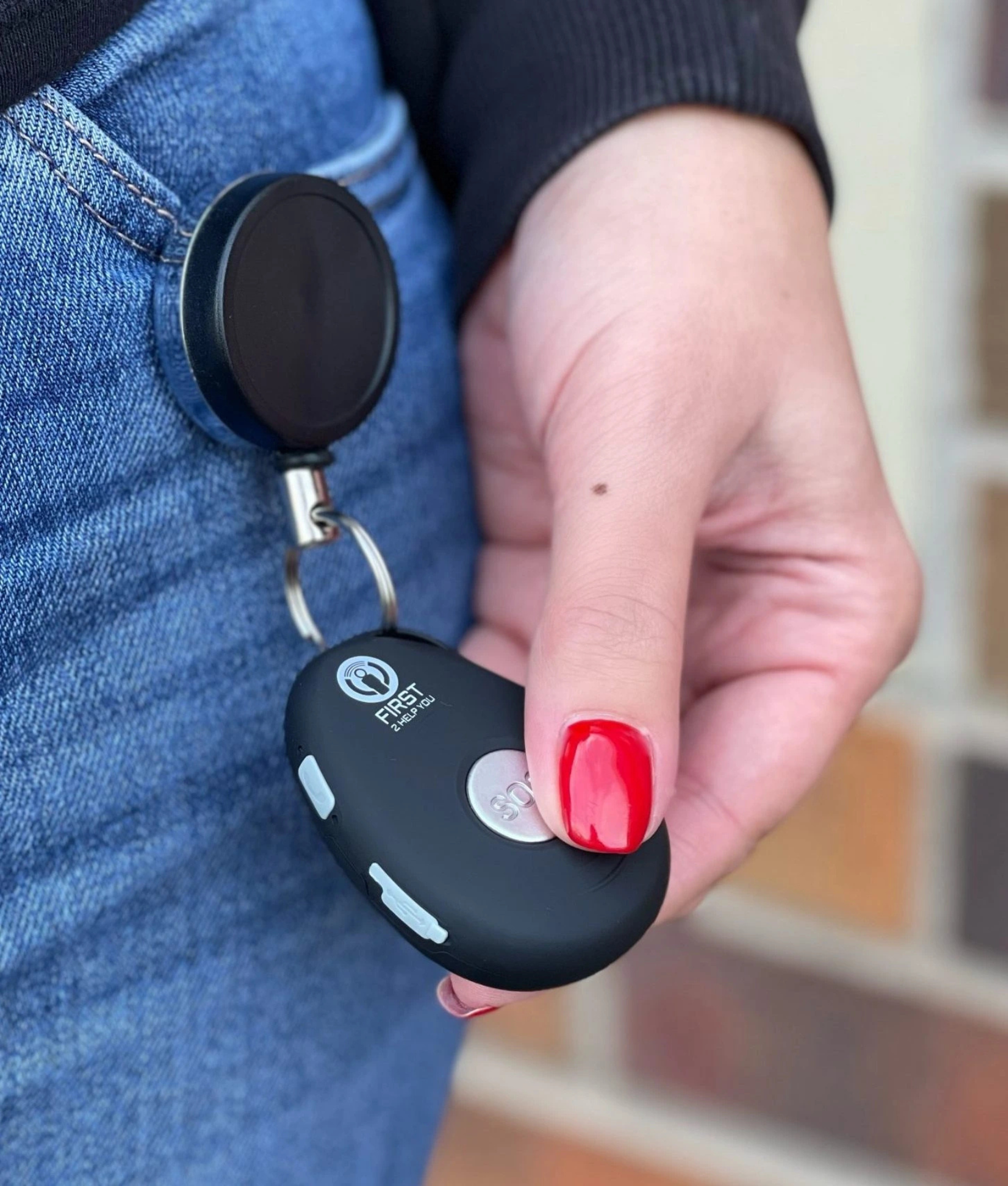
Lone workers play a crucial role in many industries, from healthcare and social care to security, construction, and retail.
While their independence allows for flexible operations, it can also come with some pretty significant safety challenges.
Working alone means fewer opportunities for immediate support in emergencies, which is why lone worker safety is an essential consideration for employers and employees alike.
In this article, we’ll explore why lone workers need to prioritise safety, the potential issues they might face, and the tools and technologies that can protect them.
To be clear – while these devices are primarily aimed at people working alone, they could also be useful for a range of other scenarios, such as workers in care homes that may need urgent assistance while dealing with a resident.
We’ll also highlight how we help to contribute to safety efforts with our practical, user-friendly solutions.
Why Lone Worker Safety Matters
Lone workers operate in environments where there are fewer colleagues or supervisors to notice potential hazards or respond to emergencies.
This isolation can increase the risk of accidents, health issues, or even personal security threats. Here are key reasons why lone worker safety matters:
Health and Injury Risks
- Slips, trips, and falls are among the most common causes of workplace injuries. For lone workers, a simple fall could result in being left without assistance for a prolonged period.
- Medical emergencies like heart attacks, fainting, or allergic reactions can be life-threatening if help isn’t readily available.
Personal Security Threats
- Workers dealing with the public, such as social workers or healthcare professionals, may face aggression or assault from clients, patients, or strangers.
- Lone workers handling valuable equipment or cash, such as delivery drivers or night-shift retail employees, are at higher risk of robbery or theft.
Mental Health and Well-being
- Working alone can be isolating and stressful, especially for employees who are far from support or supervision.
- Without regular interaction with colleagues, workers may experience feelings of loneliness or anxiety, which can impact their mental well-being.
Legal Responsibilities
- Employers have a legal duty of care to protect all employees, including lone workers. Failure to do so can result in legal action, fines, or reputational damage.
Potential Safety Issues Faced by Lone Workers
Lone workers face unique challenges that are not as common in team-based work environments. Some of the key issues include:
- Delayed Emergency Response: If a lone worker suffers an injury, help may not arrive quickly enough to prevent further harm.
- Limited Communication: Poor phone signal or lack of a direct communication line can leave workers stranded without a way to call for help.
- Increased Vulnerability to Assault: Workers in public-facing roles or those handling valuable goods are more likely to encounter aggressive individuals.
- Fatigue and Stress: With no colleagues to share the workload or provide social support, lone workers are more prone to burnout and mental fatigue.
How Companies Can Protect Lone Workers
To ensure the safety of lone workers, companies must develop a comprehensive strategy that includes risk assessment, training, and access to essential safety equipment.
There are several ways that a company can help to make sure lone workers are looked after properly:
- Conduct Risk Assessments
- Identify specific risks based on the role, environment, and location of lone workers, and look at ways that these risks can be mitigated, or at least communicated in advance to workers to raise their awareness.
- Address issues like lighting, security, emergency access, and communication tools to remove as many risks as possible.
- Training and Awareness
- Train employees on best practices for staying safe while working alone.
- Teach workers how to identify hazards, de-escalate confrontations, and respond to emergencies, with regular refresher training where needed.
- Emergency Communication Tools
- Provide workers with SOS kits, emergency contact devices, and mobile apps that can send alerts to supervisors.
- GPS tracking devices can help managers locate workers in real-time if they need assistance.
- Safety Devices and Equipment
- Personal Safety Devices: Wearable panic buttons, mobile tracking apps, and two-way communication devices allow workers to signal for help quickly.
- Wearable Reels: Many safety devices, such as panic alarms, are designed to be attached to key reels for easy access. This ensures workers can trigger emergency alerts quickly and discreetly.
- Protective Clothing and PPE: Ensure workers have the appropriate clothing and equipment for their environment (e.g., high-visibility jackets, helmets, or gloves).
How Red Strawberry Supports Lone Worker Safety
SOS kits and other safety tools such as those provided by First2HelpYou.co.uk are some of the best options for helping keep workers safe. But you need to make sure that these tools are readily available and on-hand for your workers – and that’s where we can come in.
Our high-quality, customisable key reels are used by companies that supply personal safety devices, ensuring that the devices stay secure and within reach at all times.
Here’s how our reels contribute to lone worker safety:
- Easy Access to SOS Devices: Many lone worker SOS kits come with personal alarms or communication buttons that can be attached to our key reels. This allows workers to activate help with a simple, quick action.
- Durability and Strength: Our key reels are made from durable materials, ensuring that the attached safety devices remain secure even in high-pressure situations.
- Custom Branding: Companies providing lone worker safety equipment can brand their devices with our custom reels, reinforcing their corporate identity while ensuring safety.
Conclusion
Lone worker safety is a responsibility that every organisation should prioritise. From reducing personal security risks to ensuring rapid emergency response, protecting lone workers requires thoughtful planning, training, and access to essential safety tools.
Companies that supply SOS kits and personal safety devices rely on practical solutions like key reels to keep these tools accessible and secure. At Red Strawberry, we’re proud to support this mission by providing high-quality reels that combine durability and safety.
If you’d like to learn more about our key reels or how they can support your lone worker safety programme, contact us today. We’d be happy to provide free samples or custom design options for your unique needs.


 Free UK delivery on all orders over £80
Free UK delivery on all orders over £80








